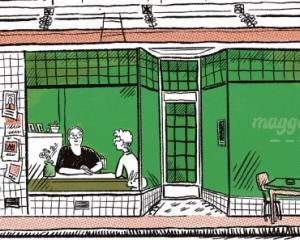Rob Kidd reviews Eggshell Skull, by Bri Lee. Published by Allen & Unwin.

Bri Lee certainly rides that wave but her memoir about the justice system and her perspectives inside and outside it take it further.
At its outset, Lee has graduated from law school and picked up a coveted role as a judge’s associate.
Her position sees her travel rural Queensland, responsible for completing administrative tasks for the judge in and out of court.
Mostly she spends her time sitting through trials — nearly all are sex cases.
The trauma Lee experiences hearing the awful testimony is magnified by her experiences.
We find out she was abused as a child by a friend of her older brother — something she has never disclosed.
Seeing the courage of complainants pouring out their soul in court emboldens her to first tell her family of her ordeal and then go to the cops.
Eggshell skull is a legal concept.
Essentially, it means the unexpected vulnerability of a person is not a defence for the injury caused to them.
Lee shows it can be interpreted another way — some victims have an unforeseen strength and will not back down.
While she may be determined, she is not unaffected by the process of pursuing justice.
The memoir details the psychological and physical toll.
At times Lee questions whether she is monopolising police and court time when there are victims of more serious crimes out there.
But as she finds her strength, she learns how to answer the question; why?
‘‘Because the girl he’d molested had grown into a furious feminist and that just made him plain unlucky, and that was just too bad for him, because that’s eggshell skull,’’ she writes.
Lee can come across as painfully idealistic but she casts a fresh light on flaws in the justice system.
Sex offenders get away with it
every day because usually it is their word against the person they abused.
Juries are distracted by extraneous detail while victims are re-traumatised and expected to carry on with their lives. Lee is frustrated with a system that seems numb to the vast emotions invested in it.
‘‘I wanted to feel — more than that, I knew it was important to keep feeling.’’
- Rob Kidd is an ODT court reporter and books editor.












